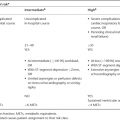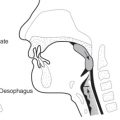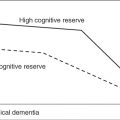Introduction
This chapter addresses how adults adapt psychologically as they age. Psychological theories of adult development have been extensively written about in the scientific literature. Several approaches addressing life stage perspective are presented here as it relates to mental vitality in late life.
Psychology is the study of behaviour and the facts and factors that influence behaviour. Psychology of ageing studies behaviour that is organized or disorganized as the adult ages, that is, how the adult adapts or does not adapt to life stresses. These behaviours may be constant throughout life as the person experiences tasks and challenges.
Generally, psychology is viewed as a broad field encompassing personality development, intelligence, memory, motivation, neuropsychological changes, creativity and sensory and motor functioning. Important for the ageing person are information processing, cognition, life satisfaction and personal control. As with all fields, psychology of ageing interrelates with the biological and social aspects of ageing. Psychological processes are constantly intertwined with biological, social and environmental factors. Understanding the psychology of ageing helps the practitioner assess the person’s ability to adapt to change, understand and cope with ageing, illness and loss. Furthermore, understanding the older adult’s previous or lack of coping and adaptive skills, the practitioner may be able to predict and understand potential problems.
Successful psychological ageing is dependent upon mental vitality. Mental vitality can be described as psychological or intellectual energy. That is, given life’s choices, how does the ageing adult face the challenge? What is the individual’s mental vigour to cope with changing biopsychosocial changes? What has been their history of adapting and coping throughout life? Studies have found that ill health is related to problems with cognition, learning and motivation, thus challenging the elder’s ability to cope.1, 2 In addition, Chou et al.3 found that mood can affect decision-making abilities in the elderly. A happy mood was related to increased risk-taking activities and, conversely, information processing and motivation were affected by the mood of the individual As Kermis4 so aptly put it, ageing is the greatest challenge.
Mental vitality encompasses present life-style choices, but also one’s history of choices. These choices include reducing stress, establishing rest and relaxation, challenging the mind, cultivating satisfying relationships and activities and avoiding known risk factors such as smoking, poor nutrition, weight problems and excessive alcohol consumption. Equally important are the attitudes and beliefs that the older adult has about ageing that reflects how successfully one ages. A mentally vigorous older adult with a positive attitude will be able to cope better with life’s challenges and make informed choices. Although cognitive deficits have been extensively written about, it is the positive changes and adaptive abilities that may be more important in daily living skills. Likewise, Reichstadt et al.5 studied the opinions of community-dwelling older adults (60–99 years of age) as to what contributes to successful ageing. Four themes emerged from their focus groups: (1) the importance of having a positive attitude and being adaptable; (2) having security and stability with regard to living situation, finance and support resources; (3) physical health and wellness, but with mixed opinions on whether this is necessary; and (4) a sense of engagement and stimulation, defined as finding meaning in life, being useful with continued involvement in stimulating activities.
Life Stage Perspective
Here, the focus will be on the emphasis of mental vitality as a life stage approach. This developmental-stage theory emphasizes integration of life experiences. The developmental theorists attempt to describe human development as a sequence of stages or steps. Developmental-stage models hold that changes in the adult personality are results of interaction of the social and biological environment. How the individual interacts with others and integrates that interaction into his/her personality is determined by the developmental tasks that the person performs. These tasks are markers of the individual’s movement through the life cycle. Each task combines some aspects of the person’s biological, psychological and social functioning. Developmental tasks combine the drive towards growth of the person with the demands, constraints and opportunities of the social environment. These tasks occur for all people in approximately the same sequence, which may overlap each other without a particular onset or termination. Failure and delay in resolving these tasks may affect how successful one will be in resolving future tasks, adjustment and overall mental health. All of these tasks act to move the individual towards optimal psychological function and personal integrity if they are successfully accomplished. Similarly, Atchley6 proposed the continuity theory of normal ageing, which observes that older adults use strategies reflective of their past experiences and views of self and their world. Change is linked to past perceptions and existing internal structures. Erikson,7 the most familiar of the developmental-stage theorists, applied his approach to the aged. In his eight stages of development, the person has a conflict with two possible outcomes, adaptive or maladaptive solutions. If an early stage is resolved with a low degree of adaptation, resolving later stages will be more difficult. Erikson’s last two stages directly apply to adults and ageing adults. These two stages are broad and cover many years, resulting in other theorists defining more definitive age-specific conflicts.
Havighurst and Peck postulated theories that have particular significance for the elderly; both authors elaborated on Erikson’s psychosocial tasks with consideration of tasks of the older adult.1, 7–9 Havighurst1 described the six tasks of old age as follows:
Ageing adults experience a variety of physical, social and psychological losses. These losses can affect mobility both physically and socially, resulting in increasing isolation. There is a chance that the environment will continue to diminish unless the individual takes action. Havighurst’s focus was on reorganizing functions and expectations.1 For example, older adults who do not accept their changing physical and health limitations and adapt may become maladjusted. Partner roles may change if one partner becomes ill. The partner who nurtured may need nurturing care; the healthy partner may have to assume new roles of banker, handyman and decision-maker. Old age is a time of almost constant change. Older adults who do not adapt or adjust flexibly may find themselves increasingly stressed and maladjusted. According to Havighurst,1 the continued refining roles and expectations to meet environmental demands accomplish the maintenance of identity.
Peck’s tasks9 are summarized into three areas of conflict. The first is ego differentiation versus work–role preoccupation and finding a way to identify and appreciate self without the job or one’s career as the marker of success. This includes satisfaction with retirement and children leaving home. The task is to find new ways, activities and passions to define one’s self. The second is body transcendence versus body preoccupation, which is understanding the changes in the body and illnesses without being preoccupied with symptoms or illness concerns. The question is, can one live successfully despite age-related changes and disease states? Many older adults cope with illness and live successful lives despite pain or infirmity. Others are preoccupied with their illness, by constantly talking about their symptoms, medication requests and frequent doctor appointments or ‘shopping’. Lastly, the third area of conflict is ego transcendence versus ego preoccupation. This process is the coming to terms with the reality of death, putting closure on the past, ensuring the welfare of children and others and leaving a legacy. There is a need to share one’s wisdom, knowledge and experience. Conversely, if maladaptive, there is a tendency to treat the world as if it will end with their death. This person may not make wills or plans for the future or for anything that would go on after their death.9
In summary, the personality is constantly changing in response to the individual’s adaptation throughout life. Life challenges can occur at any time in the life cycle, but older people are more likely to have to confront more challenges simultaneously. Losses, physical and functional changes and cultural expectations stress older adults when their psychological reserves are low and their social supports are diminishing.4
What do We Know?
In 2011, the first wave of ‘baby boomers’ (65–74 years old) will be retiring. For the next 20 years, 74 million baby boomers will retire. The 74–95-year-old cohort will steadily increase their numbers and also their life expectancy. As a group, the frail elderly is growing the fastest. In the United States, the 85+ age group will triple to 19 million by 2050.10 Worldwide, the World Health Organization (WHO) estimates there are 4 million elders over the age of 85 years. Further, since 2007, the global population of all ages of older people has increased to 506 million worldwide.10, 11
Ageing is not uniform or static. There is differentiation among the ageing, commonly divided into four groupings of the young-old (60–70 years of age), the old (71–74 years of age), the old-old (75–84 years of age) and the frail-old (85 years of age and over).12–14
Stay updated, free articles. Join our Telegram channel

Full access? Get Clinical Tree








